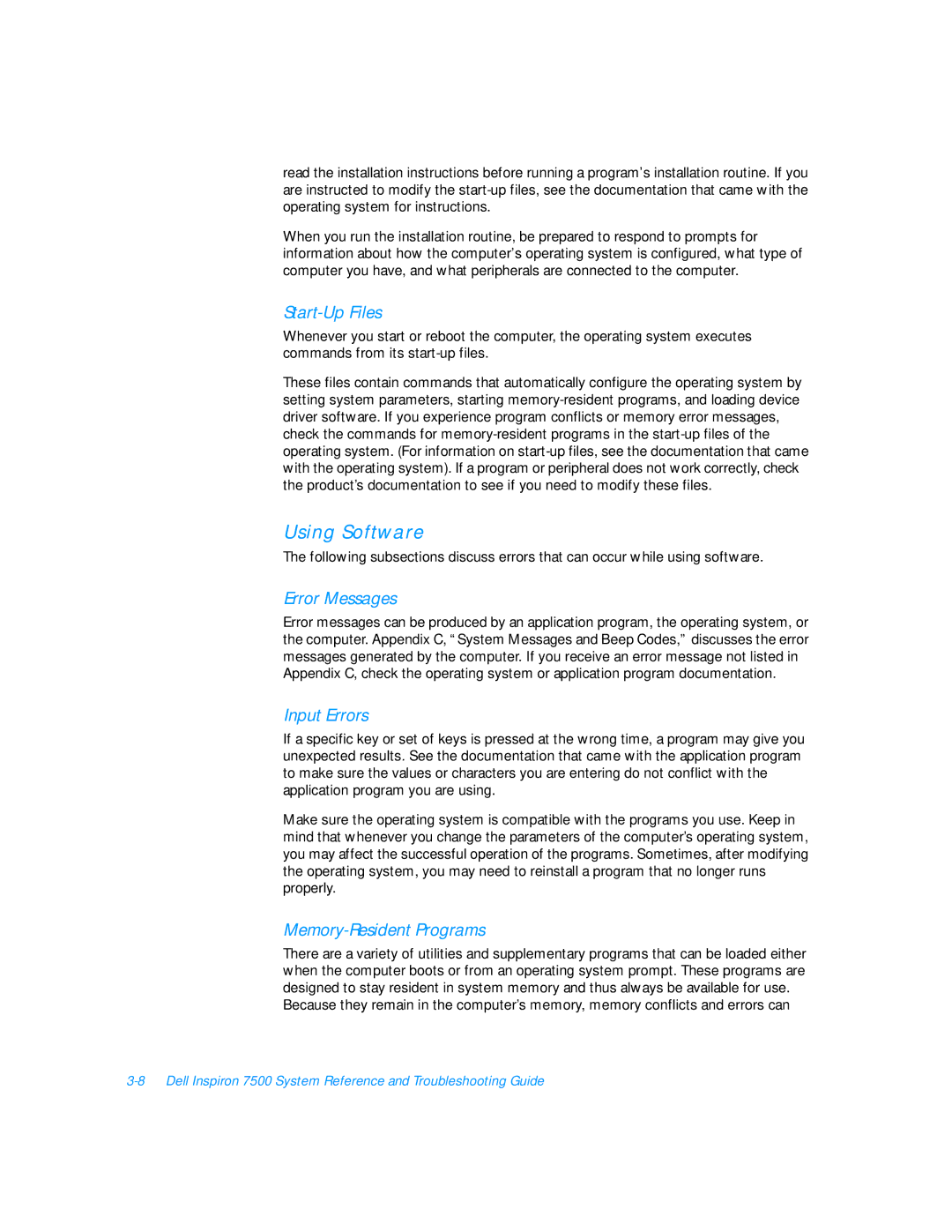read the installation instructions before running a program’s installation routine. If you are instructed to modify the
When you run the installation routine, be prepared to respond to prompts for information about how the computer’s operating system is configured, what type of computer you have, and what peripherals are connected to the computer.
Start-Up Files
Whenever you start or reboot the computer, the operating system executes commands from its
These files contain commands that automatically configure the operating system by setting system parameters, starting
Using Software
The following subsections discuss errors that can occur while using software.
Error Messages
Error messages can be produced by an application program, the operating system, or the computer. Appendix C, “System Messages and Beep Codes,” discusses the error messages generated by the computer. If you receive an error message not listed in Appendix C, check the operating system or application program documentation.
Input Errors
If a specific key or set of keys is pressed at the wrong time, a program may give you unexpected results. See the documentation that came with the application program to make sure the values or characters you are entering do not conflict with the application program you are using.
Make sure the operating system is compatible with the programs you use. Keep in mind that whenever you change the parameters of the computer’s operating system, you may affect the successful operation of the programs. Sometimes, after modifying the operating system, you may need to reinstall a program that no longer runs properly.
Memory-Resident Programs
There are a variety of utilities and supplementary programs that can be loaded either when the computer boots or from an operating system prompt. These programs are designed to stay resident in system memory and thus always be available for use.
Because they remain in the computer’s memory, memory conflicts and errors can
